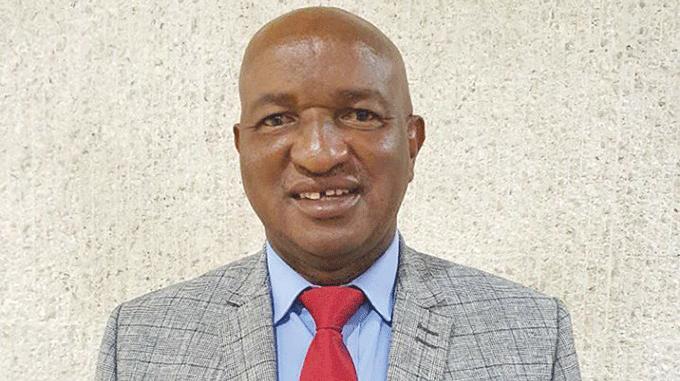News / National
'Hostile' journalists barred from covering Zanu-PF meetings
23 Nov 2024 at 19:54hrs |
0 Views

Newly-appointed State Security Minister Lovemore Matuke has ordered a ban on journalists deemed "hostile" from covering Zanu-PF internal meetings, signaling a shift in the party's media access policy.
Traditionally, both private and public media representatives were allowed to attend official Zanu-PF gatherings, such as Provincial Coordinating Committee (PCC) meetings. However, Matuke’s directive seeks to limit attendance to vetted individuals, citing concerns over information leaks and social media backlash.
Clampdown on Information Leaks
In a video widely circulated on social media, Matuke addressed Zanu-PF members during a PCC meeting in Masvingo, held at Clovelly, emphasizing the need for heightened vigilance.
"We hold meetings, but by the time we leave, we would already be facing backlashes [on social media], and you then wonder whether the people who participated in those meetings were bonafide Zanu-PF members," said Matuke, who also serves as the security secretary in the Zanu-PF Politburo.
The minister issued a stern warning to party members leaking sensitive information, stating that security agencies would track down and punish those responsible.
"We must have our security guys who watch out for people who leak information and bring them to book. Those people should be dealt with thoroughly," he added.
Tighter Scrutiny at Meetings
Matuke called for stricter vetting procedures to ensure only eligible members attend internal gatherings.
"Going forward, chairman, we need to designate our members responsible for information, including news personnel. Be very strict that nobody just comes and sits without being scrutinized. If it is a PCC, only those eligible should attend," he said.
Implications for Press Freedom
The directive has sparked concerns over press freedom, with critics warning that barring independent journalists from covering Zanu-PF activities could restrict transparency and accountability.
This move follows a broader trend of tightening control over information flow within Zimbabwe, particularly concerning political processes and governance. Critics argue that targeting journalists and whistleblowers may suppress dissenting voices and limit public access to crucial information.
Increased Security Measures
Matuke’s statements reflect the ruling party’s growing unease over internal divisions and the dissemination of sensitive information through social media. By consolidating control over information and intensifying scrutiny of attendees, Zanu-PF aims to reinforce its organizational security and reduce public criticism.
The minister’s remarks also highlight the dual role of Zanu-PF's leadership in both party and state apparatuses, raising questions about the intersection of party politics and national governance.
Traditionally, both private and public media representatives were allowed to attend official Zanu-PF gatherings, such as Provincial Coordinating Committee (PCC) meetings. However, Matuke’s directive seeks to limit attendance to vetted individuals, citing concerns over information leaks and social media backlash.
Clampdown on Information Leaks
In a video widely circulated on social media, Matuke addressed Zanu-PF members during a PCC meeting in Masvingo, held at Clovelly, emphasizing the need for heightened vigilance.
"We hold meetings, but by the time we leave, we would already be facing backlashes [on social media], and you then wonder whether the people who participated in those meetings were bonafide Zanu-PF members," said Matuke, who also serves as the security secretary in the Zanu-PF Politburo.
The minister issued a stern warning to party members leaking sensitive information, stating that security agencies would track down and punish those responsible.
"We must have our security guys who watch out for people who leak information and bring them to book. Those people should be dealt with thoroughly," he added.
Tighter Scrutiny at Meetings
Matuke called for stricter vetting procedures to ensure only eligible members attend internal gatherings.
"Going forward, chairman, we need to designate our members responsible for information, including news personnel. Be very strict that nobody just comes and sits without being scrutinized. If it is a PCC, only those eligible should attend," he said.
Implications for Press Freedom
The directive has sparked concerns over press freedom, with critics warning that barring independent journalists from covering Zanu-PF activities could restrict transparency and accountability.
This move follows a broader trend of tightening control over information flow within Zimbabwe, particularly concerning political processes and governance. Critics argue that targeting journalists and whistleblowers may suppress dissenting voices and limit public access to crucial information.
Increased Security Measures
Matuke’s statements reflect the ruling party’s growing unease over internal divisions and the dissemination of sensitive information through social media. By consolidating control over information and intensifying scrutiny of attendees, Zanu-PF aims to reinforce its organizational security and reduce public criticism.
The minister’s remarks also highlight the dual role of Zanu-PF's leadership in both party and state apparatuses, raising questions about the intersection of party politics and national governance.
Source - NewZimbabwe
Join the discussion
Loading comments…
































